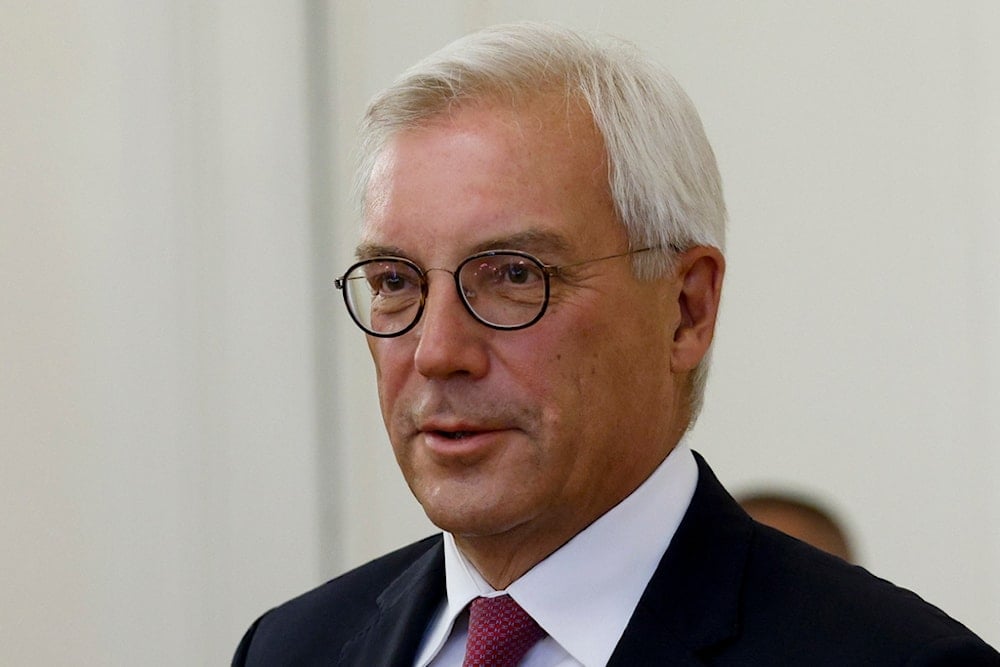Russia ready to repel any threat from NATO Baltic Sea exercises
As NATO conducts its BALTOPS 2025 drills in the Baltic Sea, Russia says it is closely monitoring the alliance’s eastern flank activities and has taken all necessary measures.
-

Russia's Deputy Foreign Minister Alexander Grushko looks on during a meeting with Turkish Foreign Minister Hakan Fidan in Moscow, Russia, Thursday, Aug. 31, 2023 (Pool Photo via AP)
Russia is closely monitoring NATO’s ongoing military exercises in the Baltic Sea and has taken all necessary measures to counter any perceived threats from the alliance, Russian Deputy Foreign Minister Alexander Grushko affirmed on Monday.
The annual BALTOPS 2025 exercises, organized by NATO, commenced in the Baltic Sea on June 3 and are scheduled to continue through June 20.
The drills form part of the alliance’s broader efforts to enhance operational readiness in the region.
Moscow accuses NATO of unified anti-Russia strategy
Commenting on the activities, Grushko said, “We are closely monitoring all the exercises that are taking place, including in the Baltic. If we look at all NATO activity on the eastern flank, we can state that this is in fact one large exercise, united by the general idea of containing Russia, but broken down into segments to look less threatening.”
According to the deputy foreign minister, the Russian military remains fully aware of the strategic intent behind NATO’s regional posture and is prepared to respond decisively. “Our military understands everything, so we are ready to repel any threats. All necessary measures have been taken today,” he stated.
Grushko made these comments during the Forum of the Future 2050, emphasizing Russia’s vigilance and preparedness in the face of increased NATO military activity along its borders.
Read more: Russia's FSB chief: Western policy fueling global Islamic radicalism
Rutte warns to raise NATO military spending to 5% or 'learn Russian'
In early June, NATO Secretary-General Mark Rutte warned that the alliance's military spending should rise sharply to confront global threats, suggesting that member states failing to meet a 5% GDP benchmark might as well “learn to speak Russian.”
"If you do not go to the 5 per cent, including the 3.5 per cent for defence spending, you could still have the NHS…the pension system, but you better learn to speak Russian. That’s the consequence," Rutte said during a conference in London, according to The Telegraph.
The remarks mark a stark escalation in NATO rhetoric, with Rutte invoking what some are calling the "learn Russian threat" to pressure member states into adopting a significantly more aggressive military budget.
The proposed spending includes 3.5% of GDP dedicated to defense and another 1.5% for infrastructure, the military industry, and security‑related investments, raising the total target to 5%.
Read more: Russia blames NATO expansion for collapse in Euro-Atlantic trust

 3 Min Read
3 Min Read











